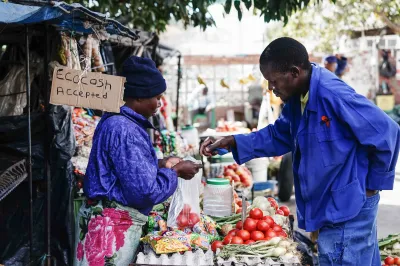Legally, How Young Is Too Young to Open a Savings Account?
Over the past few months, while working on YouthSave, a project dedicated to developing and testing savings products for low-income youth in developing countries, I have often come across the question of whether youth may be “too young” for financial services. Having just turned 20 and as the youngest member of the team, I’ve tasked myself with answering that question, “How young is too young to open a savings account?”
In most countries, youth under the age of 18 are typically prevented from independently opening a savings account because few banks are willing to offer any financial services without requiring a signed contract.
Since legally-binding contracts can only be signed by those above the age of majority, it is common for youth to be allowed to open an account only in conjunction with a guardian. This is true across most developing and developed countries, with only a few notable exceptions (in the Philippines, for instance, children can open an account at age 7).
Having guardians open bank accounts with youth has its benefits. Guardians provide support and assistance and their presence often boosts the confidence of youth who may feel intimidated in a bank environment and uncomfortable with negotiating or comparison shopping.
However, guardianship requirements may also have unintended negative consequences. For example, a guardian can be irresponsible or even exploitative, taking the assets of the youth, and the requirement excludes vulnerable populations, such as orphans or adolescents living independently at a distance from responsible relatives.
The presence of a guardian may also limit the youth’s responsibility in financial transactions, reducing the financial capability developed through having the account. These concerns are especially relevant in developing countries where some youth are already engaged in income-generating activities and responsible for managing money for themselves, and often, for other family members as well.
The question of being “too young” is reflected in another key barrier to youth access to savings accounts – identity requirements. Banks typically require some form of identification in order to open an individual account. In many countries, there are no government-issued IDs for minors. In the Dominican Republic, for instance, the ID is not available until age 16 and in Indonesia, not until age 17. Additionally, banks often require additional documentation, such as utility bills or rental agreements to verify residential addresses, presenting further difficulties for youth.
The rigorous need for ID is often part of a country’s Anti-Money Laundering and Combating Financing of Terrorism (AML/CFT) policies, which, while intended to prevent money-laundering and financing of terrorism, may have inadvertent consequences for youth access to finance.
An interesting solution to the identification problem can be found in South Africa, which originally required documentation to verify a client’s residential address in order to open a bank account. However, the Mzansi Bank Account Initiative waives address verification for clients who present national identification, maintain low balances and transact only domestically. This exemption has been shown to extend access to finance to many more potential clients for banks in South Africa.
Ensuring that youth have access to the financial services is important, because it helps them develop the financial capability to become financially responsible as young adults. It is also important, however, to have the right product and legal framework in place so that those youth are adequately protected.
To learn more about the YouthSave project or youth financial services in general, visit www.youthsave.org.




Add new comment